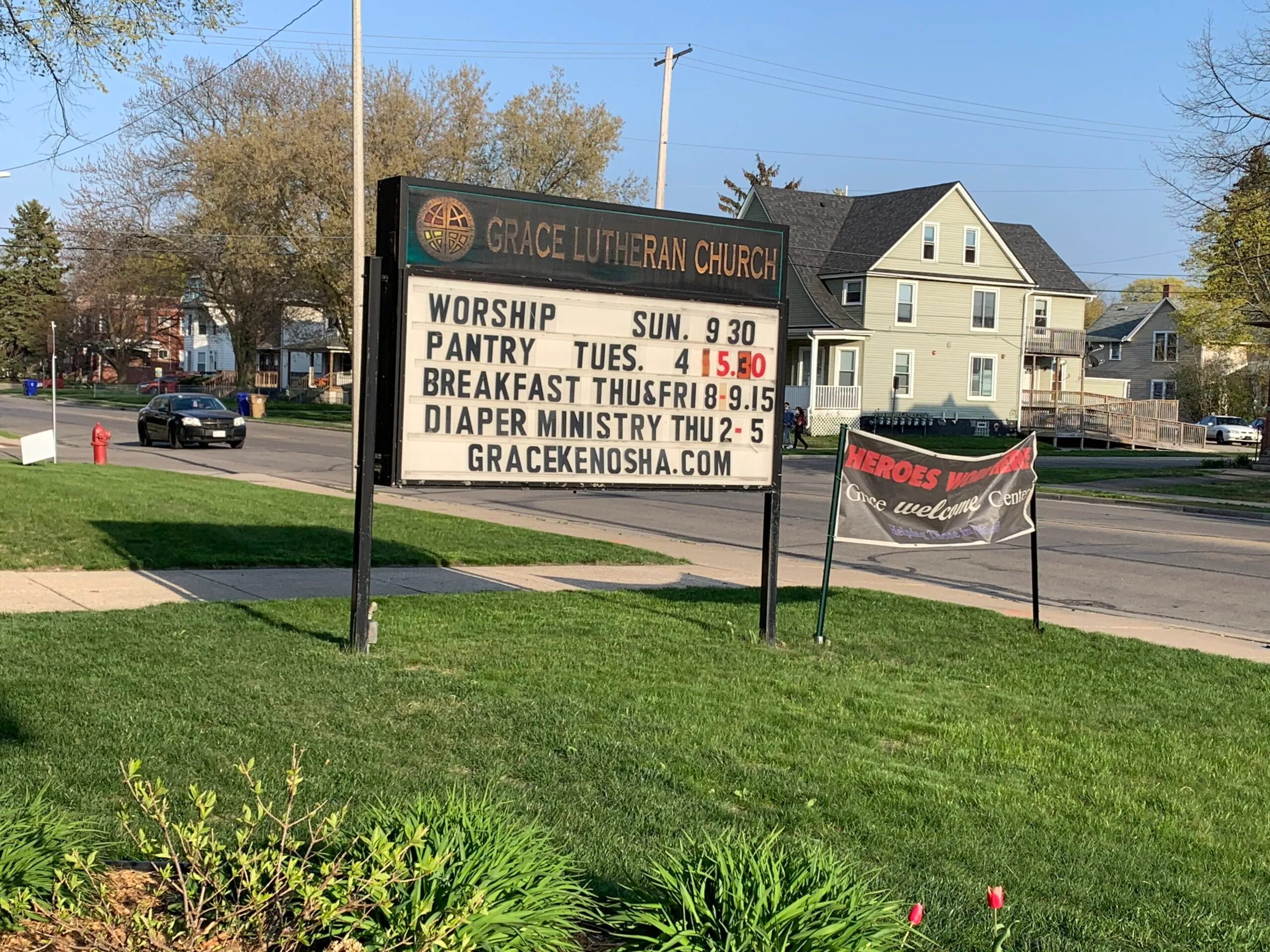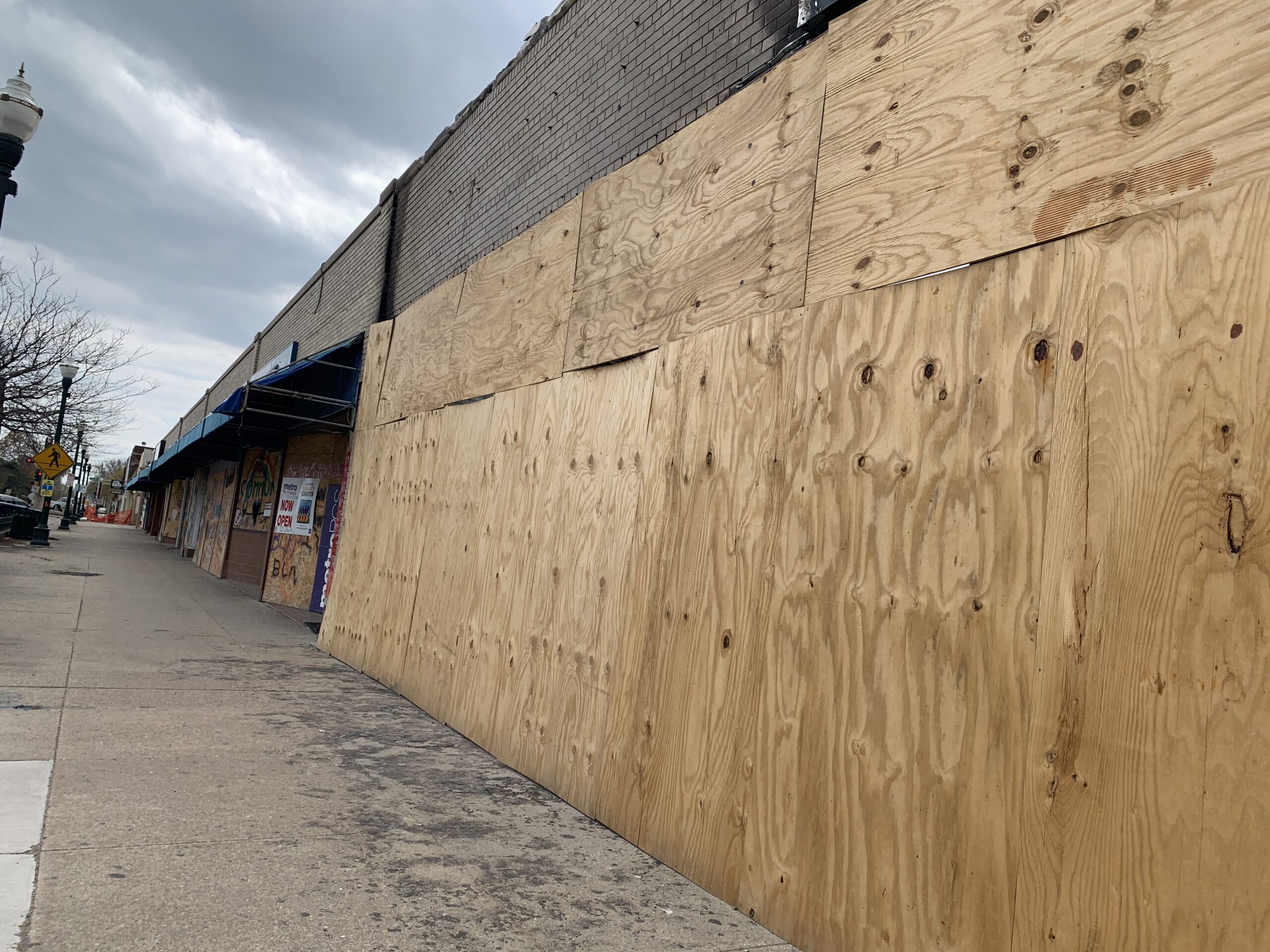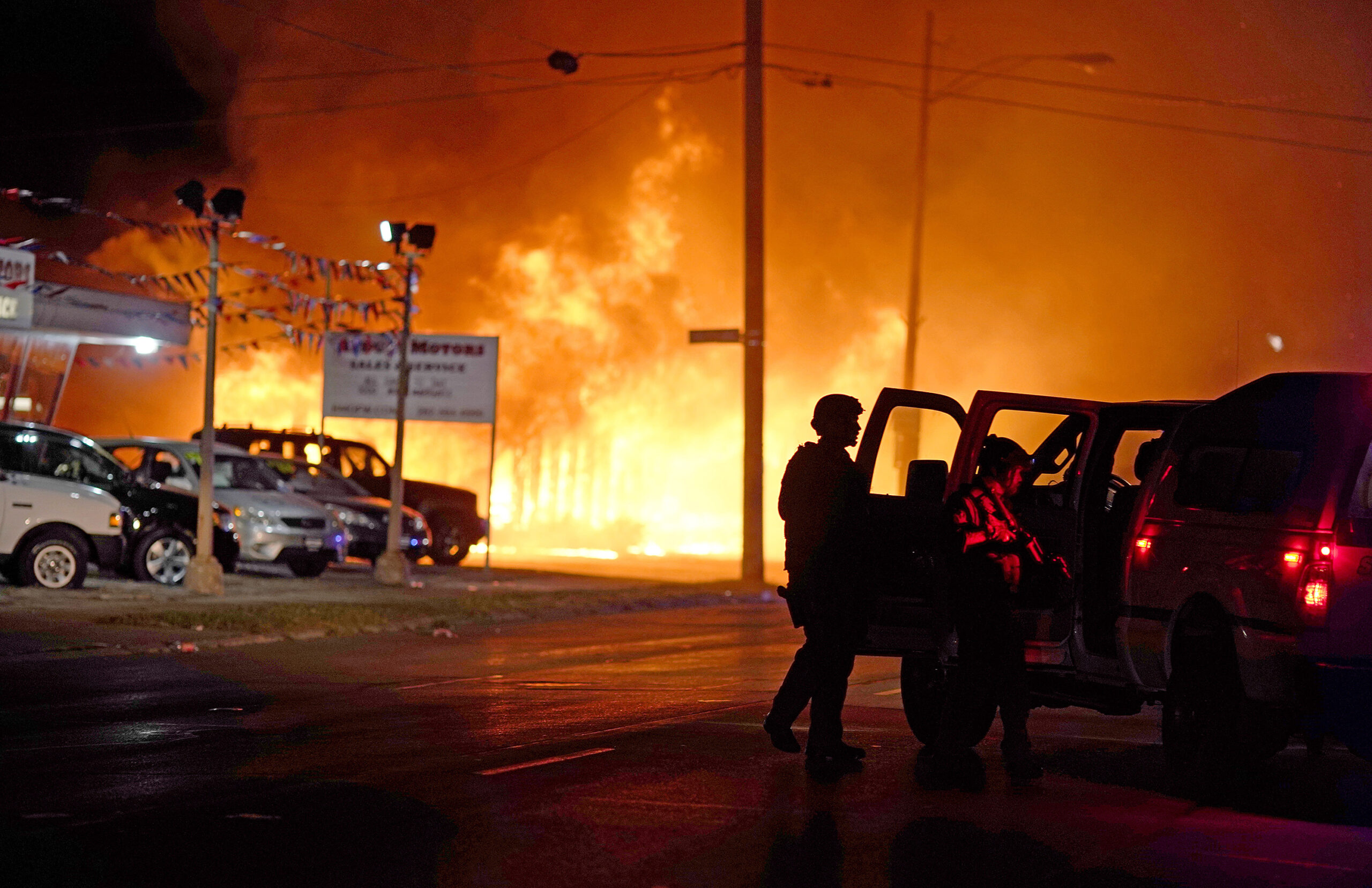On Aug. 23, 2020, a Kenosha police officer shot Jacob Blake as he scuffled with law enforcement officers in one of several incidents that rocked the nation last summer. Riots that occurred in the ensuing days brought violence, destruction, and the national spotlight to the small Wisconsin city. The Washington Examiner recently went back to Kenosha to find out what has happened in the aftermath.
KENOSHA, Wisconsin — If there has been a racial reckoning in Kenosha, Wisconsin, Justin Blake and the Rev. Jonathan Barker didn’t get the memo.
Both men, one black and one white, were recently arrested during a planned protest outside of the Kenosha Public Safety Building.
Barker had purposely picked a Sunday in late April, after church services, to stage the sit-in.
He, Blake, and activist Joseph Cardinali showed up at 3 p.m.
AFTER THE RIOTS: KENOSHA STRUGGLES MONTHS AFTER PROTEST CIRCUS LEFT TOWN
As day turned into dusk, the 40 or so protesters who had also gathered, as well as most of the television crews, had packed up for the night and left.

Blake, Barker, and Cardinali, now huddled under bright green blankets to cut the Wisconsin wind, didn’t budge.
They were there to protest the return of officer Rusten Sheskey to the Kenosha Police Department.
Sheskey, a white officer, had been on administrative leave after he shot Jacob Blake Jr., a black man, in the back seven times. Blake, a 29-year-old father of six and the nephew of Justin, grew up in Evanston, Illinois. He had moved to Kenosha a few years ago because he thought it would be safer.
His shooting was caught on camera and ignited several nights of civil unrest in the small Wisconsin city.
The incident and the aftermath exposed deep racial divides in Kenosha. Tensions between an almost all-white force and the minorities they police had boiled over.
The mayor’s initial response was a series of missteps, and aside from four “listening sessions,” there hasn’t been a lot of change in Kenosha, residents told the Washington Examiner.
“They did their listening sessions, and I appreciate that, but again, where are the real changes?” Barker said. “I feel like the onus should be on the police department, and they should say, ‘We want to rebuild community trust. It’s not on the community to start trusting us again. It’s on us to reach out and make the necessary changes.'”
But what goodwill had developed in the nine months since Blake’s shooting shattered when Barker, Justin Blake, and Cardinali were handcuffed, arrested, and processed on April 25.
“When they issued our final warning, we all certainly would have stood up if the police officers or the sheriff would have given us that opportunity,” Barker told the Washington Examiner during an interview at Grace Lutheran Church in Kenosha. “We weren’t going to be resistant. We had already made clear we were there to be peaceful. But rather than let us have the opportunity to stand up, they yanked us all up.”

It didn’t hurt as much for Baker or Cardinali, mostly because they were young and fit, but Justin Blake was considerably older and had a torn rotator cuff.
For Blake, things only got worse as the night went on.
“They were pretty gentle with us, but they were visibly more aggressive with him even though he’s older, skinnier, and injured,” Barker said. “It was sad but not surprising to me that that had happened. You just keep seeing the same stuff over and over again in slightly different forms, and it just reminds you of the racism that’s here.”
According to the pastor, he and Cardinali were taken to a holding cell, processed, and bonded out fairly quickly.
Blake, who invoked his constitutional right to remain silent, was repeatedly asked to identify himself, show identification, or speak. After several attempts to get him to speak, deputies strapped him into an “emergency restraint chair” — which had chest, wrist, and ankle straps — for several hours.
Sgt. David Wright, Kenosha Sheriff’s Department public information officer, told the Washington Examiner it was standard procedure.
“We thought we knew who [Justin Blake] was, but we weren’t able to positively identify him because he wasn’t talking,” Wright said. “He refused to answer any questions. He refused to even speak a single word, and when we asked him some questions and said, ‘If you don’t want to speak, will you nod your head when we ask you questions?’ … He refused that even.”

Wright added that protocol “doesn’t allow us to book someone into the jail and get them through the process so they can bond out until they identify themselves.”
Kenosha has a fast ID system that takes a fingerprint to identify someone in custody, but when officers tried to run it on Blake, they did not get a hit back.
“We didn’t have a positive ID on him in any way, shape, or form,” Wright said. “He had all of these items on his person … So he had sunglasses, a hooded sweatshirt with ties, a face mask, shoes with laces, and pants with a belt. So even if he was not going to be booked because he wouldn’t give us the identification, we still had to place him into a holding cell until he was ready to cooperate. But those items he had on his person, he wouldn’t remove them. So if he wouldn’t remove the items on his person, we can’t put him into a holding cell with other people.”
The deputies told Wright he would be put into a restraint chair if he did not comply. He continued to remain silent but willingly got in the chair.
The sight was more than Barker could take.
“I saw him with my own eyes,” Barker said. “They actually strapped him for eight hours to a chair. It’s overwhelming and heart-wrenching, and I wish I could say I was surprised, but I’m not. … Every time you feel like you’ve hit rock bottom in terms of what the response is going to be from our county, they do something to be even more racist. They put an African American man who is in his 50s in a restraint chair because he exercised his right to be silent. It’s heartbreaking to me.”
Jacob Blake Sr., Justin Blake’s older brother and Jacob Blake Jr.’s father, told the Washington Examiner he’s upset but not surprised.
CLICK HERE TO READ THE WASHINGTON EXAMINER
“There is no justification in what my son received. There is no justification in what my brother received,” Jacob Blake Sr. said. “Why do we have to continuously beg for someone to understand that we are human beings, that we are not animals? We are treated as such before we even get the opportunity or the benefit of doubt. We are treated beneath humans. We are not treated in the same light as those two Caucasian gentlemen who were arrested at the same time. They didn’t even get shackled in the police department. They just sat there while my brother was strapped to a chair, like an electric chair.”

